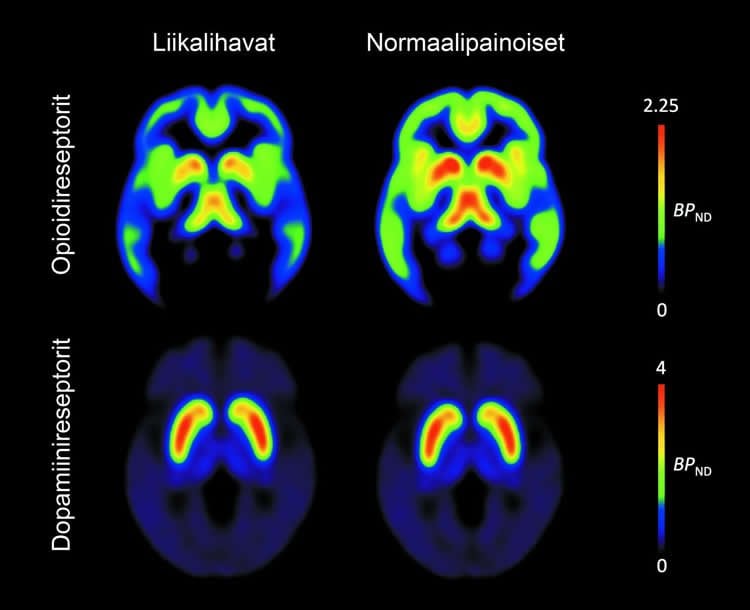Researchers at Aalto University and University of Turku have revealed how obesity is associated with altered opioid neurotransmission in the brain.
New research reveals how obesity is associated with altered functioning of brain’s opioid system, which is intimately involved in generating pleasurable sensations. Researchers found that obesity was associated with significantly lowered number of opioid receptors in the brain. However, no changes were observed in the dopamine neurotransmitter system, which regulates motivational aspects of eating.
Obesity is a great challenge to human health worldwide because it is associated with serious medical conditions such as type 2 diabetes, coronary heart disease, and stroke. Even though it is well known that unhealthy eating habits are the major cause for obesity, people have often problems with restraining their eating.
Our findings highlight how obesity is associated with brain-level molecular changes. It is possible that the lack of brain’s opioid receptors predisposes the obese individuals to overeating to compensate decreased hedonic responses in this system, tell professor Lauri Nummenmaa and researcher Henry Karlsson.
The findings have major implications for our understanding of the causes of obesity. They help us to understand the mechanisms involved in overeating, and provide new insight into behavioural and pharmacological treatment and prevention of obesity. However, we do not yet know whether the altered brain neurochemistry is a cause or consequence of obesity.

The researchers measured availability of mu-opioid and type 2 dopamine receptors in normal-weight and obese individuals’ brains using positron emission tomography at the Turku PET Centre.
The research was funded by the Academy of Finland, Sigrid Juselius Foundation and The Finnish Diabetes Research Foundation.
The findings are published on March 4, 2015 in the scientific journal the Journal of Neuroscience.
Contact: Lauri Nummenmaa – Aalto University
Source: Aalto University press release
Image Source: The image is credited to Aalto University and is adapted from the press release
Original Research: Abstract for “Obesity Is Associated with Decreased μ-Opioid But Unaltered Dopamine D2 Receptor Availability in the Brain” by Henry K. Karlsson, Lauri Tuominen, Jetro J. Tuulari, Jussi Hirvonen, Riitta Parkkola, Semi Helin, Paulina Salminen, Pirjo Nuutila, and Lauri Nummenmaa in Journal of Neuroscience. Published online March 4 2015 doi:10.1523/JNEUROSCI.4744-14.2015






